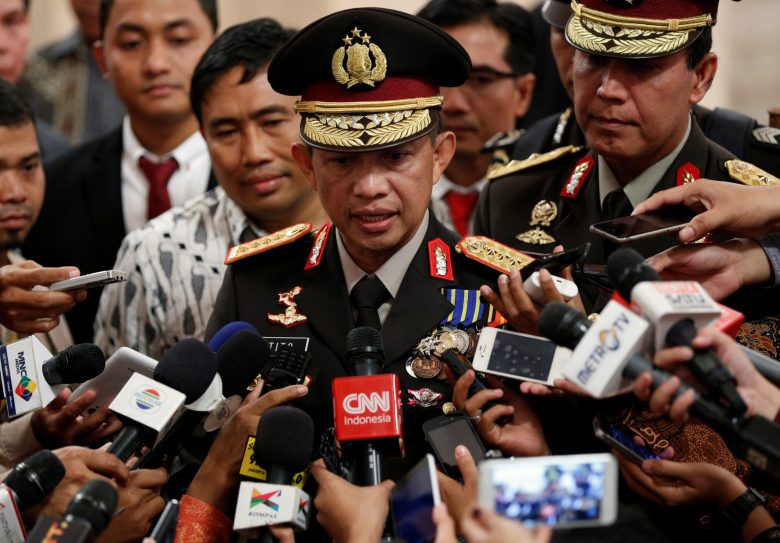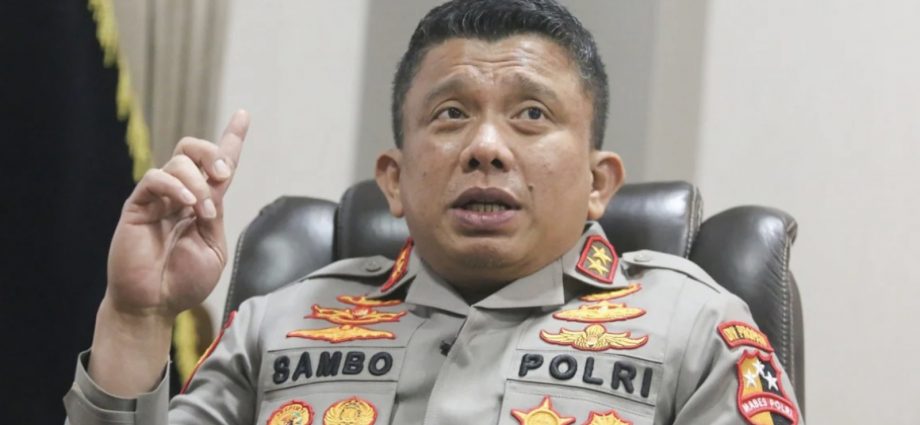JAKARTA – A Jakarta court has sentenced an influential former police general to death for the murder of his aide, but following a four-month trial that had Indonesians glued to their television screens they still don’t know the real motive behind the sensational crime.
Internal affairs commander Chief Inspector-General Ferdy Sambo was arrested last August 9, almost a month to the day after the death of Brigadier Nofriasyah Yoshua Hutabarat in what was initially reported to be a shoot-out at Sambo’s official residence.
A panel of three judges on Monday (February 13) found Sambo “proven legally and convincingly guilty of the crime of participating in premedicated murder,” but the death sentence came as a surprise after prosecutors only sought life imprisonment.
The nature of the killing suggested an entanglement, with political coordinating minister Mahfud MD only feeding that speculation by telling reporters at one point: “The motive can only be read by adults.”
As it was, the prosecution never delved beyond disproving the two-star general’s claim that the murder was in revenge for Hutabarat allegedly sexually assaulting his wife.
Although capital punishment remains in the newly enacted Criminal Code, the legislation introduces a non-retroactive probationary period for death sentences under which good behavior will be rewarded with commutation to a term of imprisonment.
Sambo will join more than 400 inmates on death row across the country, including half on drug-related offenses and four elderly prisoners who have been there for half their life.

Because of the government’s zero-tolerance policy, news reports say 80 of the 94 death sentences recorded since 2020 were for drugs, which continue to remain a blight on Indonesian society. Seven of those sentences were handed to foreign nationals.
The last executions were in 2016 when nine convicted drug traffickers – four Nigerians and citizens from Malawi, Brazil, the Netherlands, Vietnam and Indonesia – died before firing squads in various locations.
The last murderers to face execution were in 2013 when three Indonesians were put to death at the Nusakambangan maximum security prison off Java’s south coast, including a Sumatran man who killed an entire family in 1991.
It was the same year and in the same location that Islamic terrorists Amrozi bin Nurhasyim, Imam Samudra and Huda bin Abdul Haq also met their fate for the 2002 Bali bombing which killed 202 people.
Analysts say the government may want to make an example of Sambo because of the high-profile nature of the case, the way it caused a loss of trust in the police and a lack of contrition on Sambo’s part.
He was also accused of trying to cover up the murder, with his wife, Balinese-born Putri Candrawathi, 49, as a willing accomplice. She received a 20-year prison sentence, 12 years more than prosecutors demanded.
Candrawathi’s driver, Richard Elizier, the confessed triggerman, was given a 12-year jail term, while two junior officers who figured in the attempted cover-up received eight years each.
During the trial, Sambo claimed the killing had not been planned, attributing it to his anger after supposedly learning that Hutabarat had raped his wife – a claim the court dismissed due to lack of evidence.
South Jakarta District Court senior judge Wahyu Iman Santoso said aggravating factors included the fact that Sambo had a personal hand in killing his own subordinate who had worked for him for three years and the grief it had brought the victim’s family.
Indeed, most observers believe the trial may never have taken place if it was not for the family, ethnic bataks from northern Sumatra known for their outspoken ways and for banding together in times of adversity.
Any other ethnic group might have been less persistent in the quest for justice, given Sambo’s rank and position within a hierarchical, 400,000-strong police force whose poor image has been further besmirched by the murder.

“The defendant’s action tarnished the institution of the national police in the eyes of the Indonesian community and the international community,” said Santoso, noting that it had also triggered “widespread unrest and commotion” across the country.
Elizer, 24, admitted firing his Glock-17 automatic three or four times at an unarmed Hutabarat, who was already bruised and cut from a prior beating before a gloved Sambo finished him off with a shot to the back of the head.
The general was then alleged to have staged the scene by firing a series of rounds into the walls of the house to make it appear as if his two subordinates had engaged in a gunfight.
But some of the facts presented by police investigators never added up and suspicions of a cover-up mounted when it was it was revealed that CCTV cameras in the house weren’t functioning.
It was only after mounting public pressure – and President Joko Widodo’s call for police to follow due process – that Police Chief Listyo Sigit Prabowo intervened and changed the official account.
Prabowo has also been touched by the scandal. It was later revealed that his expert adviser, Fahmi Alamsyah, had resigned in connection with the case, though police remained tight-lipped about the circumstances.

With five years still to go before retirement, Prabowo has long had close ties to the president, serving as deputy police chief of the Central Java town of Solo when Widodo was the mayor and later becoming his presidential adjutant.
The son of a police general, 50-year-old Sambo is the first graduate from his 1994 Police Academy class to be promoted to field grade, which he is said to have achieved on his own merits.
But according to insiders, his mentor when he was rising through the ranks of the Criminal Investigation Department (CID) was current Home Affairs Minister Tito Karnavian, another long-term Widodo associate who was police chief between 2016 and 2019.

